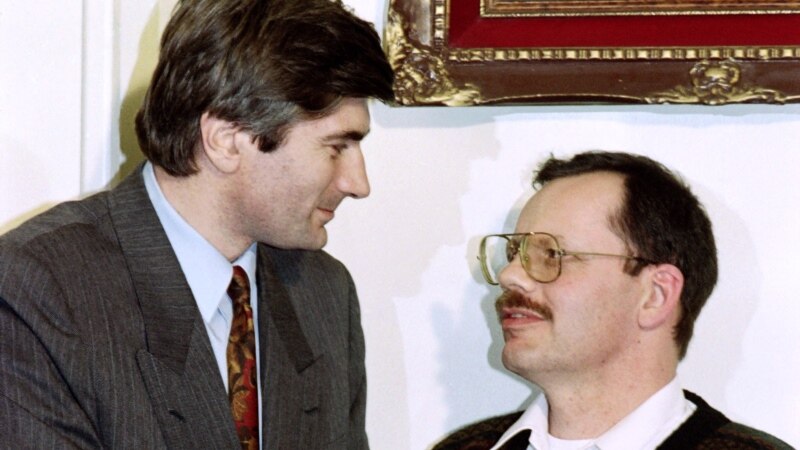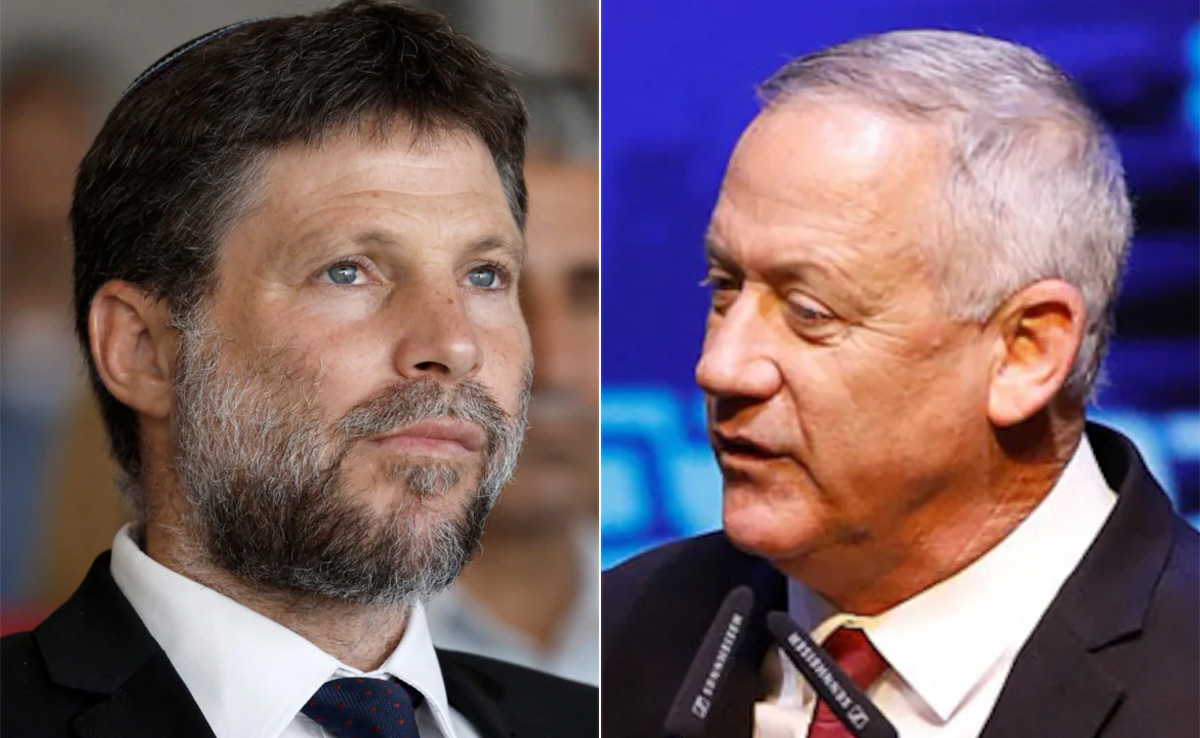
Giandomenico Picco, the former United Nations diplomat whose negotiating skills helped resolve some of the toughest crises of the 1980s and 1990s, including the Iran-Iraq war and the kidnapping of Westerners by Hezbollah in Lebanon, has died.
Pico died peacefully on Sunday after a long illness, his son Giacomo Pico said. He is 75 years old.
Picco worked at the United Nations from 1973 to 1992. In 1982, the world body’s fifth secretary-general, Peruvian Javier Pérez de Cuéllar, appointed him to an executive role, where he eventually became assistant secretary-general for political affairs.
In 1985, Picco represented Pérez de Cuellar in negotiations between New Zealand and France after the Greenpeace flagship Rainbow Warrior was sunk by French agents. The ship sank amid protests against French nuclear testing in the Pacific.
The following year, he became the top U.N. official responsible for negotiating an armistice in the war between Sunni-majority Iraq and Shia-majority Iran. In 1980, Iraqi dictator Saddam Hussein invaded neighboring countries, unleashing trench warfare, waves of Iranian attacks and Iraqi chemical weapons attacks in a conflict that killed more than 1 million people. die.
Pico also played a role in Afghanistan, helping to broker the withdrawal of Soviet troops in 1989 after Moscow invaded the country in 1979.
Pico’s knowledge of and ties to Iran allowed him to negotiate the release of hostages kidnapped by groups with ties to the Islamic Republic, including Associated Press Beirut bureau chief Terry Anderson, who had been kidnapped the longest ——From 1985 to 1991.
The mission is not without risks. In 1987, Anglican envoy Terry Waite disappeared from Beirut while trying to secure the release of hostages and was imprisoned — until 1991.
As Pérez de Cuellar’s envoy, Pico faced this risk with personal courage and knowledge of diplomacy and the Middle East.
“When asked how my approach to securing the release of the hostages differed from Terry Waite’s, I replied, ‘He went to Beirut from the west, and I went to Beirut from the east.’ At that time, the east started in Tehran ,” Pico wrote in his 1999 biography “The Man Without a Gun: A Diplomat’s Secret Struggle to Free Hostages, Fight Terrorism, and End the War.”
In a 2013 BBC interview, Pico described how he traveled to Beirut during negotiations and was told by an Iranian diplomat that he would meet his kidnappers that night.
He said the car screeched to a halt and a bag was placed over his head.
“Then I was thrown into the trunk of a car, which is something I don’t recommend to anyone,” recalled Pico, who is 6 feet 4 inches tall and is known for his elegant dress.
“Of course, I knew I could be taken away,” he said. “I had no choice at that point. I put in quite a bit of time and I believed in myself that what I was doing was the right thing.”
Pico eventually negotiated an agreement in which the militia would release 10 hostages, including Anderson, within months. In return, Israeli-backed forces in southern Lebanon released dozens of Arab prisoners.
Pico was born in Udine, northeastern Italy, close to Austria and the former Yugoslavia. The location influenced his ability to triangulate the needs of different groups and solve difficult problems, according to friends and family.
“He was able to draw on that background when he was dealing with hostages, kidnappers,” said John Connaughton, a longtime friend and attorney with experience in international relations. “Gianni Pico can deal with all kinds of people.”
Pico holds degrees in political science from the University of Padua, the University of California, Santa Barbara, the University of Prague and the University of Amsterdam.
Just as important, his son said, he had a deep sense of empathy and curiosity.
“He was just a curious guy. No matter who you were, he always learned something from other people,” said Giacomo Pico, who works in finance in New York.
After joining the world organization, the elder Pico became a political affairs officer for the United Nations peacekeeping force in Cyprus. In 1981, Perez de Cuellar brought him to the United Nations headquarters in New York.
“Unlike governmental diplomacy, we are not trying to gain a political point of view that favors one side or the other,” Picco said of the U.N.’s role in a 1991 interview. “We want to create a situation where in the end everyone wins. situation. If indeed everyone wins, then we all win.”
Anderson said in an interview earlier this year that Pico was chosen for hostage negotiations because “I guess the secretary-general thought that if he could talk to the Afghans, the Iranians, the Russians and the Iraqis, he could talk to anyone. People talked, and he did it.”
“He broke the ice, that’s what he did, and he did it at great risk,” Anderson added. “He’s one of the smartest people I know.”
In the book, Pico describes how his long relationship with Pérez de Cuellar led him to Afghanistan, when his mentor received a “thankless Afghan briefing” after the Soviet invasion on December 26, 1979. “. De Cuellar, who helps run the United Nations Office of Special Political Affairs, asked Pico to develop a road map for peace in the country.
Pico wrote that the experience taught him about the role of a diplomat.
“Our job, then, is to fill the void and foster coalition politics in a way that ends the bloodshed,” he wrote. “It’s okay to emphasize the Secretary-General’s good offices role, but then it’s up to each of his representatives to stretch the rubber band as far as possible without snapping. This is critical to understanding what we are doing in Afghanistan.”
On December 12, 1991, President George Bush presented Pico with the Presidential Award for Distinguished Service.
“His deft diplomacy with representatives of Middle Eastern governments, officials, and hostage holders brought freedom to many people held without due process of law in the region, including Including six Americans.” “His personal courage in the face of danger and dedication to mission represent the best traditions of the international civil servant.”
In 1994, Picco left the United Nations and became CEO of GDP Associates, an international consulting firm.
A regular lecturer at conferences and universities, and the author of numerous foreign affairs publications, Picco has received at least five honorary degrees and awards from governments.
Pico, who works for an international body without the funding or military might of great powers, said he must arm himself with commitment, neutrality and dedication to win the freedom of innocents.
“I do like to execute my own ideas. I think it’s unfair to think about something and then ask someone else to do it. It’s not very courageous,” Picco said in a 2017 speech in New York.
Follow us on Google news ,Twitter , and Join Whatsapp Group of thelocalreport.in
















